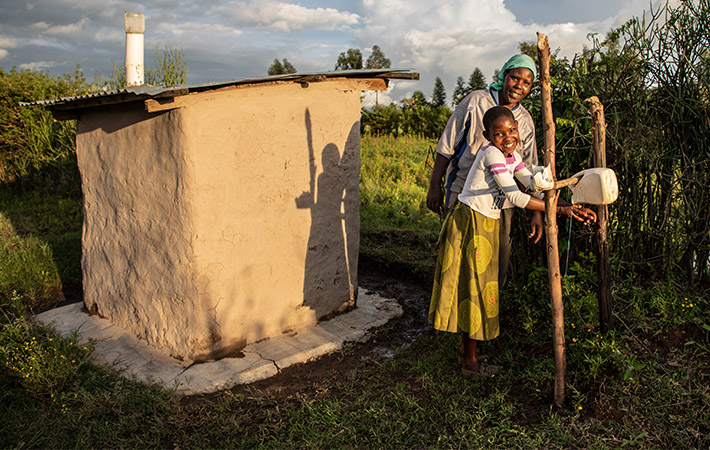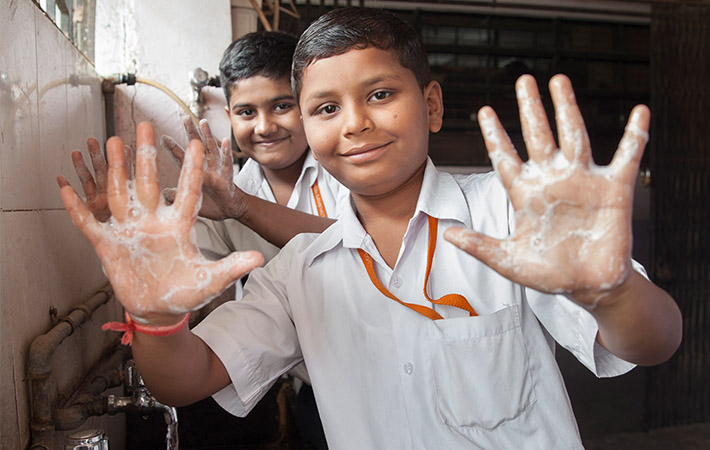Breaking barriers to well-being

We make a greater difference through partnerships
At Essity, we know that hygiene and health are fundamental to people’s well-being – in all parts of the world, and in all phases of life. It is a simple fact, but also full of complex challenges. From taboos and stigmas, to access to the necessary products and facilities. Our products, our solutions and our work contribute to the improvement of well-being for people around the world.
Within the framework of the Essity brand purpose – Breaking Barriers to Well-being – we are engaging in a series of global and local initiatives to promote awareness and inspire sustainable solutions for hygiene and health. Through collaborations, partnerships, reports, education and innovations, we help enable a global dialogue to drive positive change for society at large.
During the year, we published the report “Accelerating Action on Hygiene and Health for All” in cooperation with the Water Supply and Sanitation Collaborative Council (WSSCC), to highlight key global challenges facing hygiene and health. The report focuses on facts and solutions with the aim of stimulating ideas and actions to improve global health and well-being.

The report was launched in conjunction with the United Nations Foundation’s annual Global Dialogue, where Essity was convening partner for the fifth year in a row. The Global Dialogue brings together leaders and experts from the private and public sectors to inspire and encourage accelerated action in achieving the UN Sustainable Development Goals.
During the year, Essity also increased its commitment to the Global Handwashing Partnership, under the leadership of the WHO and UNICEF. The spread of COVID-19 has further emphasized the importance of good hand hygiene to reduce the spread of infections in society and save lives. In addition, Essity contributed to the “COVID-19 Solidarity Response Fund”, coordinated by the WHO.
Through our cooperation with UNICEF in Mexico, we have reached more than seven million young people with knowledge around hand hygiene and hygiene in relation to menstruation. During the year, we launched a virtual initiative to educate girls, boys, teachers and parents. Through our collaboration with the Red Cross in several countries, we have also reached out to people in particularly vulnerable situations during the pandemic.